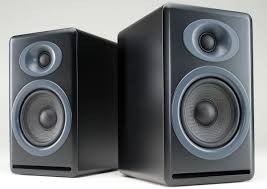 From the Ghana (1960) Criminal Code plus Amendments, and the Constitution of the Republic of Ghana 1992 it is unequivocally obvious to me that laws are in place to prevent the harm caused by noise pollution:
From the Ghana (1960) Criminal Code plus Amendments, and the Constitution of the Republic of Ghana 1992 it is unequivocally obvious to me that laws are in place to prevent the harm caused by noise pollution:
From the Criminal Code:
Section 22—Duty to Prevent Felony.
Every person who, knowing that a person designs to commit or is committing a felony, fails to use all reasonable means to prevent the commission or completing thereof, is guilty of a misdemeanour.
Section 69—Causing Harm.
Whoever intentionally and unlawfully causes harm to any person shall be guilty of second degree felony.
Section 71—Exposing Child to Danger.
(1) Whoever unlawfully—
(a) exposes a child to danger or abandons a child under twelve years; or
(b) exposes any physically or mentally handicapped child to danger or abandons a physically or mentally handicapped child in such a manner as to cause any harm to the child—
shall be guilty of a misdemeanour.
Section 72—Negligently Causing Harm.
Whoever negligently and unlawfully causes harm to any person shall be guilty of a misdemeanour.
Section 287—Carrying on of Noxious Trade, and other interference with Public Rights. Whoever, without lawful authority or excuse (the proof whereof shall lie on him) commits any of the following nuisances, namely— (a) carries on any noxious, offensive, or noisy business at any place, or causes or permits any noxious or offensive matter to be collected or continue at any place, or so keeps any animals at any place, as to impair or endanger the health of the public inhabiting or using the neighbourhood of that place, or as to cause material damage to the lands, crops, cattle, or goods of such public, or as to cause material interruption to such public in their lawful business or occupations, or as to materially affect the value of their property; or (b) so makes, keeps, or uses any explosive matter, or any collection of water, or any other dangerous or destructive thing, or any building, excavation, open pit, or other structure, work or place, or so keeps any animal or permits to be at large, as to cause danger of harm or damage to the persons or property of the public; or any well, spring, or reservoir, so as to deprive the public of the benefit thereof; or (c) corrupts or fouls the water of any public well, tank, spring, reservoir, or place used or intended for supplying water to man or for fish culture, shall be liable to a fine not exceeding ¢500,000 and shall, upon conviction for a continuance or repetition of any such offence, be guilty of a misdemeanour.
Section 288—Explanation as to Carrying on of Noxious Trade, etc. The following provisions shall have effect with respect to the nuisance of carrying on a noxious, offensive, or noisy business, at any place, or of causing or permitting noxious or offensive matter to be collected or continue at any place, or of keeping animals at any place as mentioned in this Chapter, namely— (a) “business” includes not only any trade, manufacture, work, business, or occupation carried on for gain, but also any continued or frequent repetition of any act or series of acts of any kind; and (b) it is necessary, in order that a person may be punishable in respect of any such nuisance, that the prejudice or danger caused thereby should extend to persons inhabiting or occupying, under separate tenancies, not less than three houses or other tenements. Section 289—Explanation as to Obstruction of Public Way. (1) A person shall not be guilty, within the meaning of this Chapter, of obstructing the public use of any public way or work by reason only of his being a party to any meeting or assembly assembled in, or upon or near any public way or work, unless the purposes of such assembly are or include the obstruction of the public by force or threats or show of force. (2) “Obstruction” of the public use of a public way or work includes the making or using of any fetish or charm for the purpose of preventing any person from using such way or work.
Nuisances and Obstructions in Streets, and the like
Section 296—Throwing Rubbish in Street.
Whoever does any of the following acts shall be liable to a fine not exceeding ¢200,000 namely—
Causing Noise in Town.
(7) in any town wilfully or wantonly, and after being warned to desist, makes any loud or unseemly noise howsoever caused to the annoyance or disturbance of any person;
Drumming, etc., in Town at Night.
(8) in any town, without a licence in writing from the Minister or a local authority beats or plays any drum, gong, tom-tom, or other similar instrument of music between eight o’clock at night and six in the morning;
Section 298—Acts tending to disturb the peace in a public place.
Whoever in any public place, or in any place within sight or hearing of persons then being in a place, disturbs the peace by fighting or quarrelling with any other person, or by making any loud or unseemly noise; or abets an unlawful fight, or uses or applies to any other person then being in such public place or within sight or hearing thereof, any violent or abusive term of reproach, or sings any profane, indecent, or obscene song, or exposes any defamatory of insulting writing or object, or with the intention of annoying or irritating any other person, sings any scurrilous or abusive song or words, whether any person be particularly addressed therein or not or is guilty of any riotous, indecent, disorderly, insulting behaviour, to the obstruction or annoyance of any passenger or person in such public place, shall be liable to a fine not exceeding ¢200,000.00.
Please note the following taken from The Criminal Code 1960:
PART I—GENERAL PROVISIONS
CHAPTER 1—PRELIMINARY MATTERS
Section 1—Interpretation
“harm” means any bodily hurt, disease, or disorder, whether permanent or temporary;
“public place” includes any public way and any building, place, or conveyance to which for the time being the public are entitled or permitted to have access, either without any condition or upon condition of making any payment, and any building or place which is for the time being used for any public or religious meeting or assembly, or as an open Court;
“public way” includes any highway, market place, lorry park, square, street, bridge, or other way which is lawfully used by the public;
acts are done “publicly”—
(1) if they are so done in any public place as to be likely to be seen by any person, whether such person be or be not in a public place; or
(2) if they are so done in any place, not being a public place, as to be likely to be seen by any person in any public place;
“town” means—
(a) the area of authority of a Municipal or Urban Council; or
(b) any place to which the Towns Ordinance applies; or
(c) any place (whether a town or not) which the Minister may by executive instrument order.
From the Constitution under Chapter Five, Fundamental Human Rights and Freedoms:
12.(1) The fundamental human rights and freedoms enshrined in this chapter
shall be respected and upheld by the Executive, Legislature and Judiciary
and all other organs of government and its agencies and, where applicable
to them, by all natural and legal persons in Ghana, and shall be
enforceable by the Courts as provided for in this Constitution.
12.(2) Every person in Ghana, whatever his race, place of origin, political
opinion, colour, religion, creed or gender shall be entitled to the
fundamental human rights and freedoms of the individual contained in this
Chapter but subject to respect for the rights and freedoms of others and for
the public interest.
25 (1) All persons shall have the right to equal educational opportunities and facilities and with a view to achieving the full realisation of that right
Writer’s Comment: Noise can negatively impact on the health of the foetus by causing birth defects and in children in terms of cognitive tasks being impaired. This then denies the child of equal educational opportunities due to the birth defects or impairments to reading, attention, motivation, hearing, behaviour and long term memory. The child because of the noise caused impairments or birth defects is at a disadvantage without equal educational opportunities. Children need to and should have all their God given faculties intact when being educated. These faculties should not be compromised, harmed or destroyed by noise or anything else! If they are then 25(1) of the Constitution is defied.
26.(1) Every person is entitled to enjoy, practice, profess, maintain and promote any culture, language, tradition or religion subject to the provisions of this Constitution
Writer’s Comment: The home is a person or persons’ refuge from the world. When noise from outside the home invades that home without invitation or permission it interrupts and disturbs the peace and activities in that home and can even prevent the normal activities of the person/s in the home. When in the home it can be difficult and nigh impossible for a person/s to escape from the noise coming from the outside. In such cases 26.(1) is defied because it prevents the entitlements of 26.(1). Noise and its nature and contents can be a form of brainwashing and can change a person/s’ desires and ideas. Forcing certain religious ideas, preaching or music or other voice messages, frequencies or indoctrination into the sanctity, privacy and tranquillity of a home is tantamount to brainwashing. http://www.phy.duke.edu/~dtl/89S/restrict/Historical/08Frazier.html People should be allowed to lawfully choose what they listen to and do in their home. When noise is forced into a person/s’ home 26.(1) of the Constitution is defied.
- (2) “All customary practices which dehumanise or are injurious to the physical and mental wellbeing of a person are prohibited”.
Writer’s Comment: In Ghana it is a customary practice to make verbal announcements to communities. For example, community information centres are a customary practice derived from the customary practice of the town crier. Such customary practices from community information centres which produce noise via loudspeakers and amplifiers which are injurious to the physical and mental wellbeing of a person are therefore prohibited. If not prohibited then they are in defiance of 26.(2) of the Constitution. I maintain that most if not all Information Centres in Ghana would be injurious to human health and wellbeing.
- (1) (d) “children and young persons receive special protection against exposure to physical and moral hazards”.
Writer’s Comment: Noise, because of its harmful effect on the physical and psychological health of children requires that children be given special protection against it. Therefore 28.(1) (d) demands that children be protected from harmful noise. The only protection from noise is a quiet environment to live, play and be educated in. If noise is imposed upon children then 28.(1) (d) of the Constitution is defied because special protection is not provided to them.
- (4) No child shall be deprived by any other person of medical treatment, education or any other social or economic benefit by reason only of religious or other beliefs.
Writer’s Comment: Noise is in enormous abundance throughout Ghana with much of it coming from religious preaching from churches, community information centres and street preachers. Nearly all use some form of loudspeaker and amplification system. In this case children are being deprived of educational, social and economic benefits when their physical and psychological health is injured or impaired by reason of noise perpetrated on the basis of religious preaching and music, and by the belief that loud noise is acceptable. When birth defects and or impairments to reading, attention, motivation, hearing, behaviour and long term memory are caused by the noise from religious and other beliefs then 28.(4) of the Constitution is defied.
How many of us in Ghana daily defy Section 22 of the Criminal Code by allowing those who perpetrate noise and other pollution to do harm without us using all reasonable means to prevent it? “Noise Can Kill” is this enough harm for us to take all reasonable means to prevent it?
Section 22—Duty to Prevent Felony.
Every person who, knowing that a person designs to commit or is committing a felony, fails to use all reasonable means to prevent the commission or completing thereof, is guilty of a misdemeanour.
Section 69—Causing Harm.
Whoever intentionally and unlawfully causes harm to any person shall be guilty of second degree felony.
Writer’s Comment: The writer of this document cannot in all good conscience be silent when so many lives are being destroyed by noise and other environmental pollution in Ghana. The evidence for the deadly, debilitating and dire health consequences of preventable and intentional noise and other environmental pollution on the unborn, children and adults is too well documented and proven to be ignored. The laws are in place to stop this destruction of human health. The Biblical command is in place to love our neighbour. So why don’t we get on with it and join together to free Ghanaians from the birth defects and the other physical and mental illnesses caused by pollution. Will you join me to help Ghanaians?
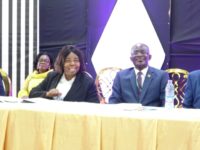
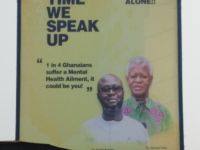


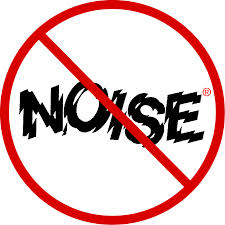
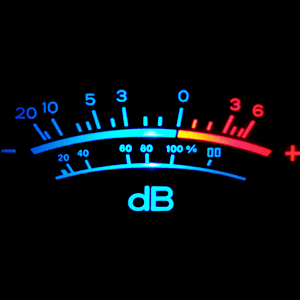
I wan to sleep, but to much loud music from a funeral during the night. Is not normal !!! Help
Hello Peter!
You hit the nail on the head! Very good and brilliant information you’ve published. I am soo excited to know there are laws in the country to protect us from this noise menace!
I am currently facing a very big challenge in my residence with a nearby restaurant turned night club really robbing me of much needed rest and violating my human rights. I will be grateful to have your contact.
Mine is 0244092252
David Wilson
David, thank you for your comment. My apologies for this extremely late reply. I have battled the noise issue in Ghana for years, In my experience neither the Police, KMA or EPA will do anything to uphold the law when it comes to preventing noise. Concerning noise it appears to me that the society here is totally and absolutely lawless.
Hello
Does anyone know how to make a noise complaint in Accra? How can you do so in the evening or on the weekend, when government offices are closed?
Does anyone even care about this noise?
These laws are absolutely meaningless unless people can complain and officials respond.
If you there are other people in your neighbourhood suffering from the noise, then go to EPA office at Accra, adjacent ministry of energy and request for complaint form. Make copies and give it to your neighbours to fill. Send the completed forms back to EPA. They’ll forward to their office at Amasaman. You can follow up from there. It’s not easy though, you know Ghana.
Please make sure you make copy of your completed forms and use it as evidence if you want to seek legal redress — the best option.
I’m having the same experience and it’s not easy. EPA and AMA are virtually powerless. So I’m thinking of going to court.
Try your luck, with EPA and your Metro Assembly. Good luck.
Hahahahahahha, EPA that is the best JOKE I have heard in a long time
A church right behind my window organises all night and this is really bothering me please help
It is the same here. A church by name Christ Kingdom is next door (orgle Road). They are having a service. They started from 7pm and as at 12:21midnight they are still here.
It is the same here. A church by name Christ Kingdom is next door (orgle Road). They are having a service. They started from 7pm and as at 12:21midnight they are still here.